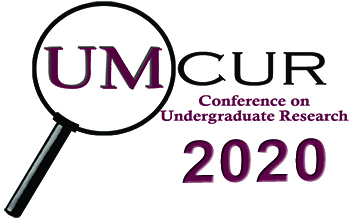Project Type
Poster
Faculty Mentor’s Full Name
ALEXANDER METCALF
Faculty Mentor’s Department
DEPARTMENT OF SOCIETY & CONSERVATION
Abstract / Artist's Statement
Wildfire is becoming an increasing topic of concern across the United States and other parts of the world. As the fire season length and size of fires increases, there is a concern of how communities will be able to adapt and live with wildfire on the landscape. Each ecosystem will adapt differently to the increase in fire across the landscape. Along with ecosystems, communities are part of these ecosystems and will need to adjust as well. My project focuses on the social and ecological resilience of fire-prone landscapes and how people have been affected by wildfire in their communities. Through facilitated group discussions, I was able to listen and collect qualitative data from community members in the Methow Valley, WA, and the Bitterroot Valley, MT, about their experiences with wildfire. These data from the group discussions help to i) articulate the realities of how people are impacted by wildfire, not only how they are impacted negatively but how wildfire allows for growth in communities; ii) the generation of new ideas about how communities can be more resilient to wildfire through collaboration; iii) demonstrating to themselves and others that this is an important issue and people want to invest in resilience; iv) but also acknowledging that there is still some disconnect between the community members and how they would like their community to work towards resiliency.
Category
Social Sciences
Wildfire and Community Resilience
Wildfire is becoming an increasing topic of concern across the United States and other parts of the world. As the fire season length and size of fires increases, there is a concern of how communities will be able to adapt and live with wildfire on the landscape. Each ecosystem will adapt differently to the increase in fire across the landscape. Along with ecosystems, communities are part of these ecosystems and will need to adjust as well. My project focuses on the social and ecological resilience of fire-prone landscapes and how people have been affected by wildfire in their communities. Through facilitated group discussions, I was able to listen and collect qualitative data from community members in the Methow Valley, WA, and the Bitterroot Valley, MT, about their experiences with wildfire. These data from the group discussions help to i) articulate the realities of how people are impacted by wildfire, not only how they are impacted negatively but how wildfire allows for growth in communities; ii) the generation of new ideas about how communities can be more resilient to wildfire through collaboration; iii) demonstrating to themselves and others that this is an important issue and people want to invest in resilience; iv) but also acknowledging that there is still some disconnect between the community members and how they would like their community to work towards resiliency.
